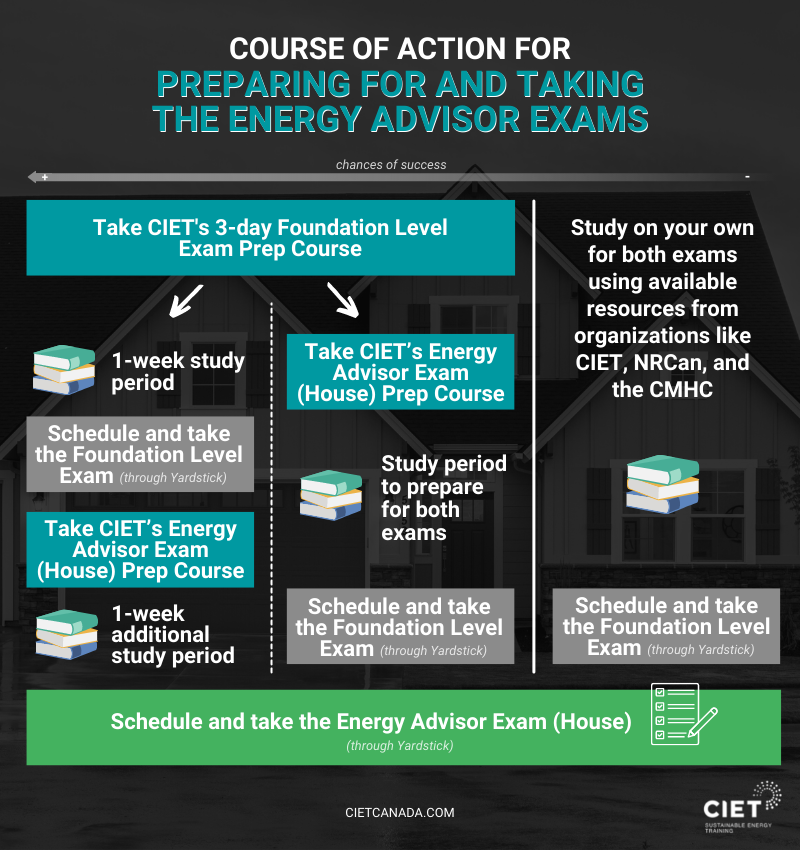
Context: The Canada Greener Homes Initiative
Preparing for and taking each exam: What is the best course of action?
What to expect when taking the Energy Advisor exams
How CIET helps you prepare for the Foundation Level and Energy Advisor exams
Having trained over 430 professionals in the last year and a half, CIET has seen a great surge in demand for NRCan-registered Energy Advisor (EA) training. Natural Resources Canada (NRCan) launched its Greener Homes Grant program in the summer of 2021, and it is now well known that the federal Government of Canada has committed to providing up to 700,000 grants for homeowners to engage EAs to conduct assessments and advise on retrofit opportunities.
In anticipation and after this announcement, many professionals have been eager to join the industry and become an EA. To do so, aspiring EAs must pass two qualification exams: The Foundation Level Exam and the Energy Advisor Exam (House). Once these first two steps are completed, they then need to become affiliated with an NRCan-licensed service organization (SO) to complete their probationary files and finalize their registration with NRCan. We will now look at the three most common courses of action people follow to become an NRCan-registered Energy Advisor.
To go further: Your Path to Becoming a Registered Energy Advisor | 7 Steps
Although the process to becoming an EA is fairly straightforward, CIET receives a lot of questions on the best course of action to schedule and pass the exams. Here are the three most common paths forward ranked in order of success.

Both the Foundation Level and Energy Advisor (House) exams are considered long exams with some tough questions. You will have three hours (180 mins) to complete 150 questions.
The Foundation Level exam serves to assess foundational competencies such as numeracy, low-rise housing construction and renovation, building envelopes, heating, ventilation, and air conditioning, building science principles, and the house-as-a-system concept.
The Energy Advisor exam (House) serves to assess the individual’s knowledge of the EnerGuide Rating System (Version 15), HOT2000 modelling, their ability to administer and deliver the EnerGuide Rating System, and ability to perform general quality assurance on house files under the EnerGuide rating System Version 15.
No matter the personal approach and course of action that you choose, CIET aims to meet learners where they are at. We do this primarily by providing three resources:
|
Interested in becoming a Registered Energy Advisor? |

|
Training calendar |

Would you like to be trained on a specific topic? Just let us know!
Express my interestSend us an email and we will respond as soon as possible.

This is to inform you that the course date is too close to be able to ship hard copies of the material to you on time. If you are willing to use the material in secured PDF, receive the material later (likely after the course) and pay upon registration, please click OK to continue the registration process. Please note that the shipping process will start only when the course fees are paid in full and delays are to be expected. Many thanks!